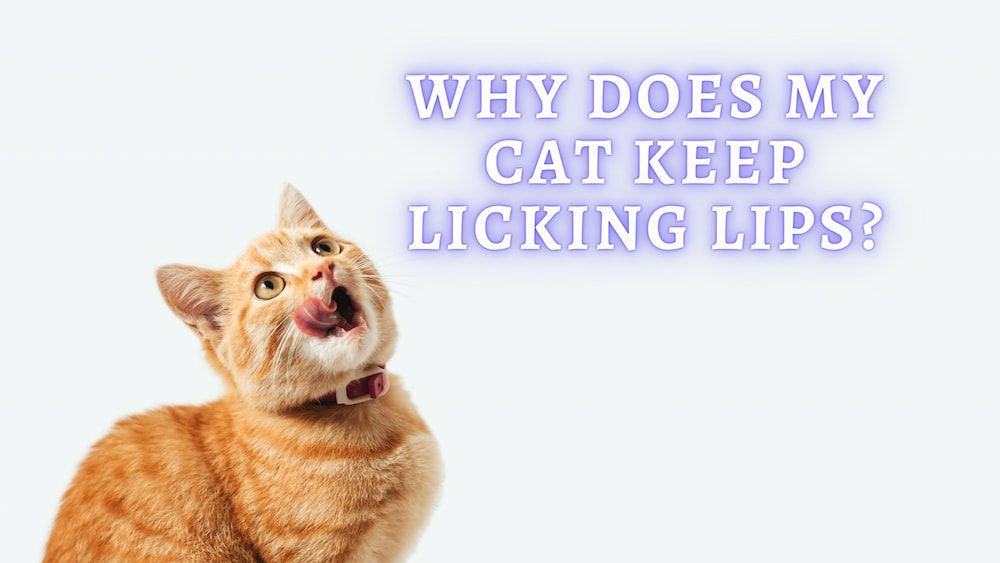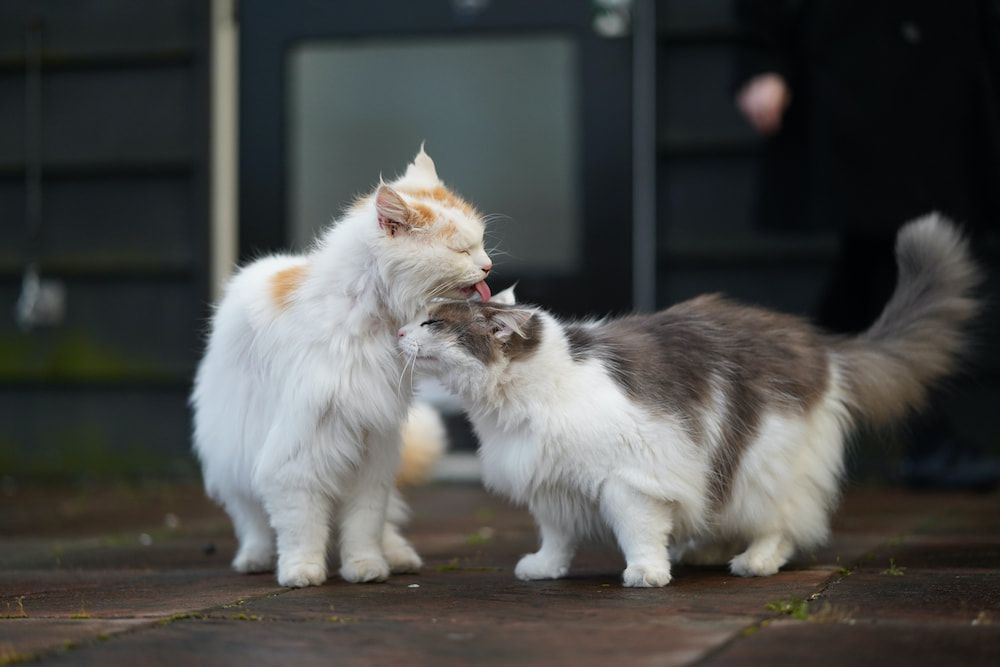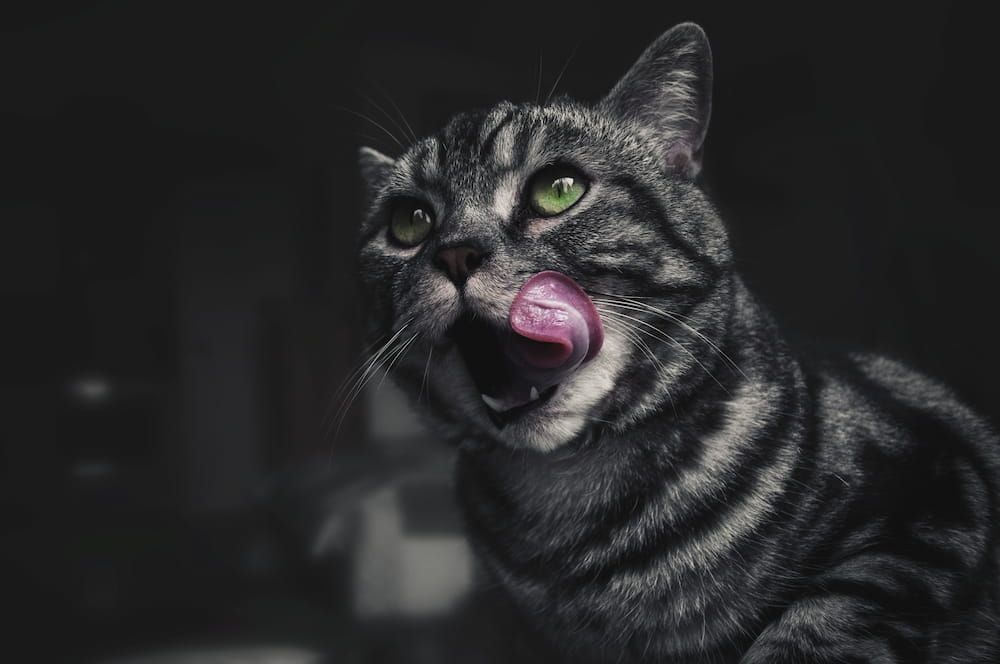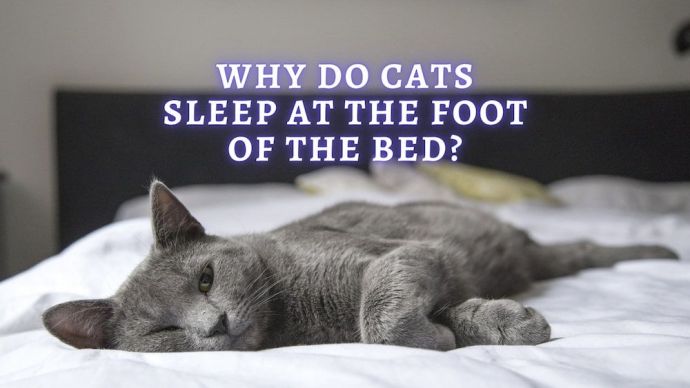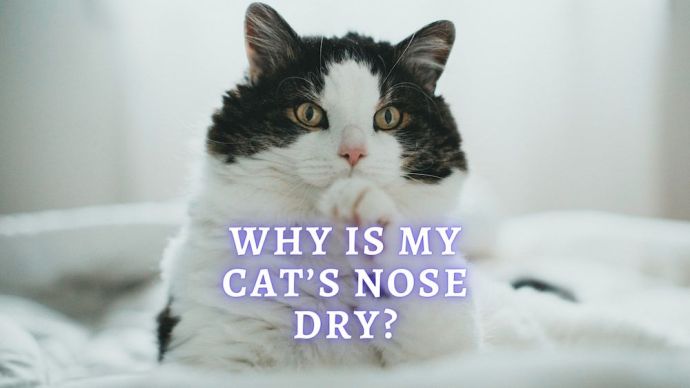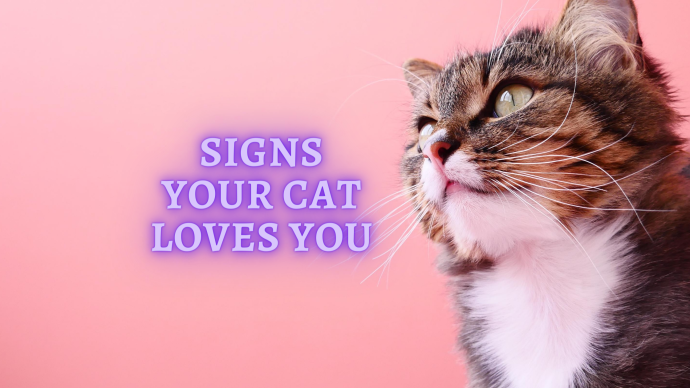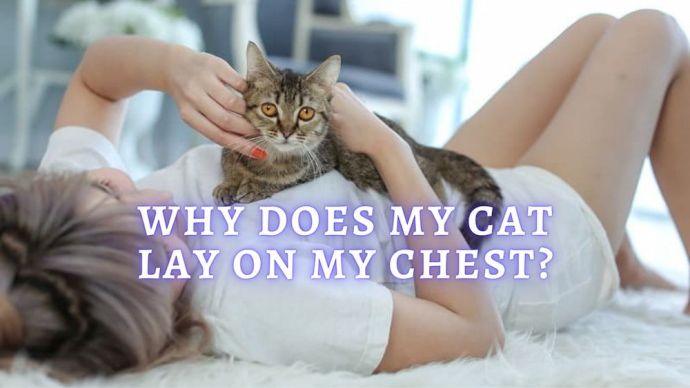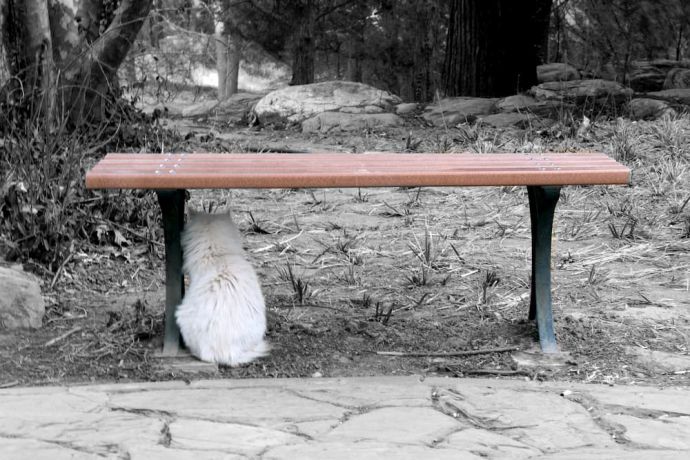Cat Licking Lips: Why Does My Cat Keep Licking His Lips?
Written by:
Author: Seb Jenkins
Seb is a professional SEO writer with a degree in Journalism, he has five years of experience in writing and editing. Seb specializes in topics like dog and cat breeds, aquarium guides, and pet care. He is passionate about educating and entertaining animal owners worldwide. In his spare time, Seb enjoys writing fiction novels.
View all 83 articlesLearn about our editorial process and veterinary review board.
Reviewed by:
Veterinary review
by Dr. Chyrle Bonk
Dr. Chyrle Bonk is an associate veterinarian since 2010 and was a volunteer for Clearwater County Youth 4H. Dr. Bonk contributed to various animal and veterinary related websites and magazines as a way to help keep animals across the globe safe and healthy. When Chyrle not working she spends her time with her own furry crew of dogs, cats, and horses.
View all 10 articlesLearn about our veterinary review board
Viewed: 3359
Updated on: 06/08/2023
Understanding why your cat is licking its lips is an important part of being a feline carer. For some cats, lip licking has always been and will always be one of their habits. For others, lip licking is rarely ever seen. Therefore, what is more important than the licking itself is noticing a change in your feline friend’s behavior. There could be cause for concern if a serial lip licker suddenly stops or if a cat who has never licked their lips before suddenly can’t stop doing it. To better understand that habit and any reasons behind it, let’s delve into the topic of cat tongues and lip licking.
What Your Cat is Telling You by Smacking Their Lips
As we explained above, lip licking can be completely normal, or it can indicate a problem. It all depends on your cat’s usual habits. When a habit turns into an excessive trend, it could be down to a medical or behavioral issue.
14 Potential Causes of Lip Smacking
The issues behind this can range from very minor and simple problems to serious causes for concern. Let’s take a look through the most common reasons behind cat lip-licking:
1. Ptyalism
Excessive lip licking and can point towards your cat suffering from ptyalism. This is essentially when their mouth produces too much saliva. [1] This, in turn, can cause your cat to feel nauseous and can result in vomiting. Other symptoms include drooling and the rejection of food. Ptyalism can come from kidney issues, dental disease, ingestion of toxins, pain, and salivary gland disorders. If you suspect ptyalism, we recommend a swift visit to the vet to get your cat properly checked over. Ptyalism isn’t the type of thing to gradually disappear, in fact, it often only increases if left untreated.
3. Displacement Behavior
This, in simpler terms, is anxiety in cats. Some cats lick their lips when they are feeling worried, nervous, and/or anxious. For example, many kitties do not like being taken to the vet. As such, when you try to drive them there or when they are placed on the vet table, you may notice that they lick their lips a lot. This is essentially a sign that the cat is anxious and trying to determine whether it needs to flee or fight. The licking can be a way for the cats to calm themselves down, and you may also notice them grooming themselves excessively.
4. Compulsive Disorders
Some cats have been known to lick their lips due to an obsessive-compulsive disorder. This is similar to OCD in humans. Essentially, it is a habit that the cat cannot help but continue with.
Having said that, cats with OCD will more often excessively lick their fur rather than their lips. It is still something to bear in mind though
DVM Chyrle Bonk
5. Nausea
Lip licking can also be a sign that your feline friend is feeling sick. When some cats feel nauseous or dehydrated, they will lick their lips to moisten or catch excess saliva. You may also notice that your cat drools a lot after the lip licking and they may eventually throw up. Of course, the latter is a tell-tale sign that the problem is nausea. After this, it is a matter of finding out why they are feeling sick.
6. Dental Disease
It is common for cats with dental disease or other dental issues to lick their lips a lot due to pain and inflammation in their mouth. In feline dental disease, plaque builds up and eventually turns to tartar above and below the gumline. This tartar buildup causing inflammation and creates the perfect home for bacteria to develop. This bacteria can then destroy your cat’s periodontal tissues. Along with the lip licking, you may also notice that your cat is not eating well, drooling, has bad breath, and is losing weight.
7. Oral Ulcers, Canker Sores
Similar to dental issues, oral ulcers and canker sores can cause pain and irritation around the mouth, which can, in turn, lead to lip-licking in cats. Along with this lip-licking and lip-smacking, you may also notice drooling and excessive swallowing. Ulcers usually come from oral infections, systemic infections, and dental diseases. Some prime examples include kidney disease or the ingestion of a caustic element. These caustic substances can include things like laundry detergents, essential oils, or potpourri in liquid form.
8. Something Tastes Funny
Cat lip licking and lip-smacking can sometimes be as simple as ‘something tastes funny. Remember, cats like to lick things. If they lick a floor after it has just been cleaned, or a dirty surface, soap, mold, or dirt, they may be left with a nasty taste in their mouth. Lip licking can just be the instant reflex action to this weird taste, just as humans would screw their face up at the taste of sour lemon.
9. Wounds
Cat licking and smacking their lips can also be a result of a wound. More often, the cats will lick directly onto the wound itself, or they can be seen pulling out their fur around the wound. However, this action can still create that lip-smacking sound. There is also the slim chance that they have a wound on their lips or around their mouth, explaining the lip licking.
10. Uncontrollable Lip Licking
There is a problem in cats known as a ‘focal seizure’, resulting in excessive lip licking, chomping at the mouth, biting at the air, and more. If you notice some of these symptoms, it is best to further research the topic of seizures in cats with your vet.
11. Foreign Body
Cats can often lick their lips a lot when there is a foreign body in and around their mouths. What we mean by a foreign body is essentially something that is caught in the area and not meant to be there. This could be a small piece of bone, it could be a plant, a piece of stick, etc. Anything that is stuck and causing slight irritation or discomfort can cause lip licking.
12. Bites
Lip licking can also be triggered by a bite on the face, mouth, or around the lips themselves. This could be a bite from something as large as another cat during a fight, or something as small as a spider, mosquito, or horse fly. It could also be a sting from a bee, wasp, or hornet. A less likely but still possible cause can also be a snake bite, bringing some swelling and discharge.
13. Feline Upper Respiratory Infection
This can be like a cold, or it can also be more serious, caused by a bacterial or viral infection in the nose/throat/sinuses. [2] Irritation in the upper airway can result in lip licking and lip-smacking. Other symptoms include coughing, sneezing, runny nose, fever, congestion, drooling, loss of appetite, ulcers, depression, and lethargy.
14. Allergy
Some cats may also lick their lips when they are allergic to something, and it is causing an allergic reaction in and around their mouths. It can cause general irritation and stress, which can lead to lip licking. Allergies include hay fever, pollen, dust mites, animal dander, medication, and more.
RELATED: Best Cat Food for Allergies Approved by Vet
Other Signs To Watch For And How To Help
There are three main steps to tick off when you notice your cat licking lips excessively:
1. Observe:
Watch your cat for a while and take note of their behavior and any other symptoms. This could include vomiting, drooling, moaning, etc. Take notes as you observe as they may come in handy later if you have to take your cat to the vet for whatever reason.
2. Evaluate:
You should now look to evaluate your cat’s behavior. How are they acting? Are they nervous? Are they anxious? Are they in pain? Are they acting normal or is something different? It’s all about determining the reason for your cat licking its lips even if you are just narrowing it down. For example, if they seem nervous, you can remove whatever might be stressing them out or take them to a calming environment to see if that improves the situation.
3. Determine whether it is a medical problem:
The final step is to decide whether or not lip-licking and lip-smacking result from a medical problem. If you think that the licking may be a result of some kind of pain, the best plan is to get your cat checked out by a vet. Remember, the vet will likely want to know when it started, whether it is consistent, when it is most frequent, etc. This highlights how important the ‘observe’ stage is. If you took notes at that stage, bring them with you.
The vet will likely examine your cat, especially around the mouth, face, and lips, in order to complete a full oral examination. During this, they will also be on the lookout for any foreign objects, ulcers, bites, etc. The vet may also ask for a detailed history of your cat and their eating habits, including any vomiting, lethargy, food/appetite changes, and more.
READ MORE: Eye Injury in Cats
FAQ:
What is licking lips a sign of?
Lip licking and lip-smacking in cats can be a sign of any number of things. These include ptyalism, displacement behavior, compulsive disorders, nausea, dental disease, oral ulcers, canker sores, something tasting funny, wounds, uncontrollable lip licking, foreign body, bites, anxiety, feline upper respiratory infection, allergies, and more.
Why does my cat keep smacking his lips?
Cats can smack their lips for any number of reasons. While some just do it as a habit, any change in lip-licking behavior may indicate a medical problem. Possible reasons why cats licking their lips can include ptyalism, displacement behavior, compulsive disorders, nausea, dental disease, oral ulcers, canker sores, something tasting funny, wounds, uncontrollable lip licking, foreign body, bites, anxiety, feline upper respiratory infection, allergy, and more.
Do cats lick their lips when stressed?
Yes, cats do sometimes lick their lips when stressed. This is known as a displacement behavior. It is essential when the cat feels nervous, stressed, or anxious in a situation, and they lick their lips or groom themselves as a way to calm down. This can often be seen during a trip to the vet, for example.
Why is my cat constantly licking?
Cats can often be seen licking at their fur when grooming themselves. However, some feline friends also lick or smack their lips. While some cats do this as a mere habit, others may be indicating a medical issue. Possible reasons behind cat licking lips include ptyalism, displacement behavior, compulsive disorders, nausea, dental disease, oral ulcers, canker sores, something tasting funny, wounds, uncontrollable lip licking, foreign body, bites, anxiety, feline upper respiratory infection, allergy, and more.
Article Sources:
- Kook, Peter H. “Ptyalism in Dogs and Cats – a Short Review.” University of Zurich, zora.uzh.ch/id/eprint/72882/1/Kook_2013_NAVC_ptyalism.pdf.
- Povey, R. C. “Feline Respiratory Infections–a Clinical Review.” PubMed, ncbi.nlm.nih.gov/pmc/articles/PMC1697218/.
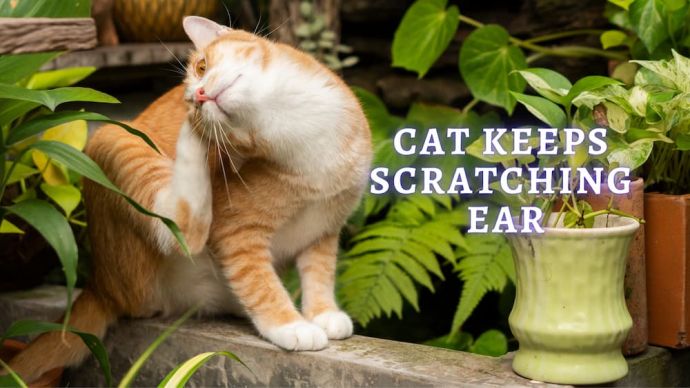 Cat Veterinary Tips Why is my Cat Scratching their Ears? (Veterinary Advice)
Cat Veterinary Tips Why is my Cat Scratching their Ears? (Veterinary Advice) - 1253
- 0
 Cat Care Why Does My Cat Attack My Legs? 10 Reasons Why and What To Do About It (Vet-Approved Advice)
Cat Care Why Does My Cat Attack My Legs? 10 Reasons Why and What To Do About It (Vet-Approved Advice) - 45566
- 21
 Cat Veterinary Tips Cat Stomach Gurgling: Vet Advice on Why is Your Cat Stomach Gurgling?
Cat Veterinary Tips Cat Stomach Gurgling: Vet Advice on Why is Your Cat Stomach Gurgling? - 35339
- 4
 Cat Veterinary Tips My Cat Lost its Voice: Can Cats get Laryngitis? (Vet Advice)
Cat Veterinary Tips My Cat Lost its Voice: Can Cats get Laryngitis? (Vet Advice) - 23247
- 13









